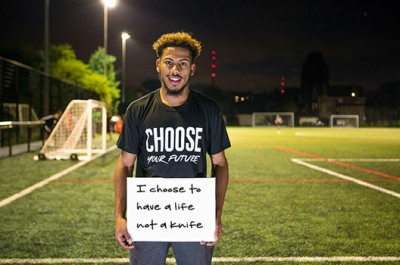What can we learn from the murder capital of Europe?
02 Saturday Feb 2019
Written by Charles Harris in Crime, Journalism, Life, Mental Game
What can we learn from the murder capital of Europe?

Just this week I heard from my neighbourhood network about yet another death from stabbing, close by in Islington.
Knife crime in London reached an all-time high last year and 2019 seems to be going the same way.
Yet in Glasgow, once called the murder capital of Europe, knife deaths among youngsters fell from 15 in five years to zero.
How did they do it?
Murder capital to role model?
To give some perspective, 35 children and teenagers died from knife attacks in London between just January and November 2017.
While in Glasgow, which once had one of the highest murder rates in western Europe, the number of young knife deaths dropped to zero. And other violent crimes fell by over 50%.
What happened?
In 2005, Scotland was shocked by a UN study that showed Scotland to be the most violent country in the developed world. Excluding murder, Scots were almost three times as likely to be assaulted as Americans and 30 times more likely than the Japanese.
But one statistic stood out. Violence dropped strikingly on one day of the year – Valentine’s Day.
Spurred by this, Strathclyde police set up a unit, directly funded by the Scottish government – the Violence Reduction Unit (VRU). The VRU realised that violence was not just about crime, but about public health, about personal emotions and relationships.
They studied previous ground-breaking schemes in Chicago, Cincinnati and Boston – where the incidence of violence halved in just two years.
Three angles
Working with other groups and organisations, such as the newly formed Medics Against Violence, they developed three main angles of attack.
The first was surprisingly conventional: they campaigned for stronger sentences for carrying knives and more stop and search. As a result, the average sentence for carrying a knife in Scotland rose from four months to 13 months.
Then they invited gang members to come voluntarily to the sheriff’s court. Here the police had cleverly mapped all the gangs and when people got there they saw their own pictures up in the court.
The police started the session with ‘We know who you are and if you carry on with this lifestyle we’re going to come down on you really hard.’”
But alongside the stick, came the carrot of empathy. From specially produced films and meetings with victims’ families, to school visits and lesson plans to inspire debate.
In this way, they got the children involved in thinking about the effects of knife crime on themselves and others.
And, perhaps most importantly, they didn’t leave it there. The third strand opened up ways to escape – housing, jobs and training.
Jobs and mentors
They gave the kids mentors with similar experience of street violence.
Impressed by LA-based Homeboy Industries, which offers gang members jobs in its cafes, VRU started its own schemes. Street & Arrow, for example, hires ex-offenders to sell street food and pairs them with mentors to advise on everything from turning up on time, to dealing with debt and relationship issues.
Huge numbers of them have taken part in such schemes and are no longer in gangs.
One striking aspect of Glasgow’s achievement, though. is the co-ordination. Where all too often different groups and bodies work separately and fight for short-term budgets, the VRU helps them work together, assured of funding and able to concentrate on doing their jobs.
Main themes
Of course, there is a long way to go and violence in Scotland has hardly disappeared.
And different places have different issues. In Glasgow, for example, violence tends to be more impulsive than planned. And the police are generally more trusted than in other cities, where institutional racism raises barriers.
But the main themes of combining justice with empathy and escape routes for youngsters who feel left behind are worth trying anywhere.
Last year the Mayor of London, Sadiq Khan, announced a new unit for the city, based on the VRU.
I’ll keep you posted.
Read More
Don’t fear failure: Glasgow’s advice for London knife crime unit
From murder capital of Europe to role model for London
If you want to receive more articles like this every Friday, join my mailing list – and get my new book of short stories for free.


Tell people what you think